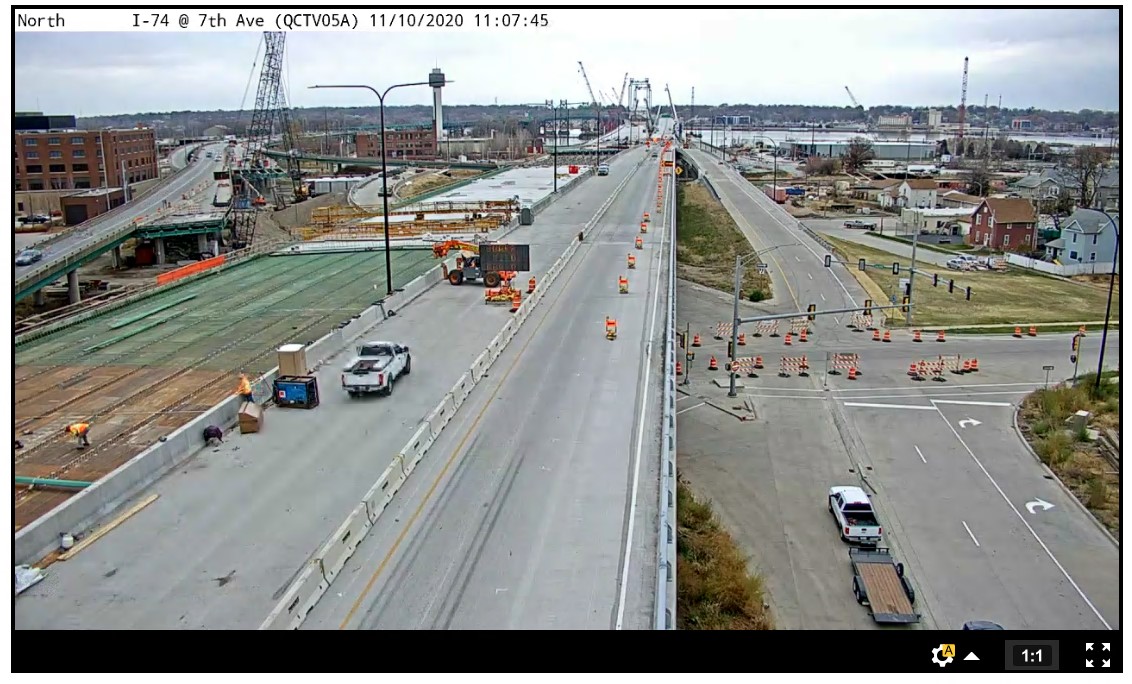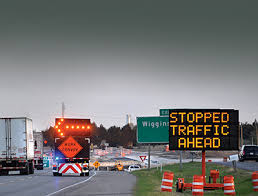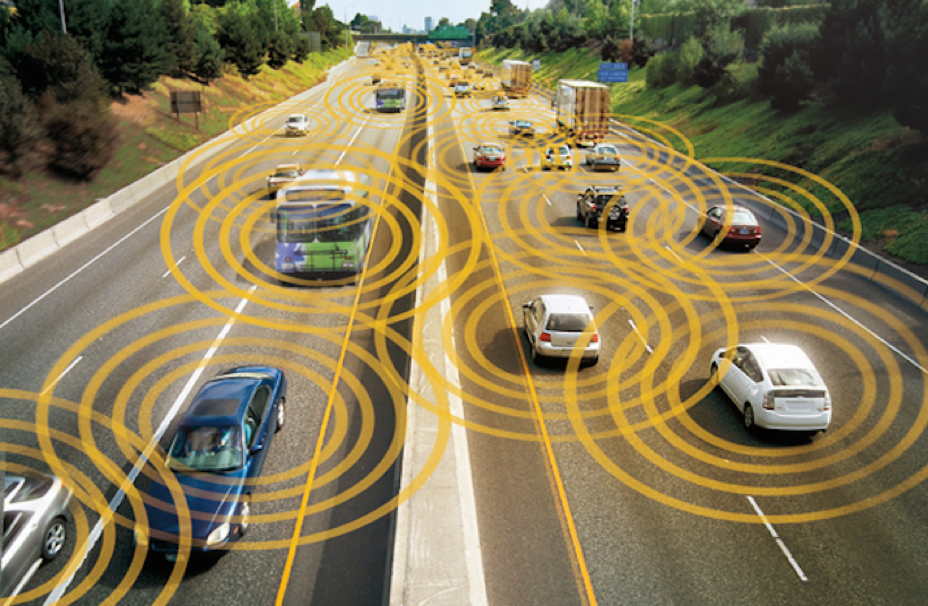Across the country, there are nearly 800 work zone fatalities every year and well over 100 workers are killed in work zone related accidents. The effect on the families of these victims is immeasurable. Some impacts can be measured; it is estimated that 10% of overall congestion and 24% of nonrecurring freeway delays are due to these work zone crashes.1
With increased rehabilitation efforts needed to maintain our aging transportation system, these safety and mobility concerns will only worsen over time. The use of Intelligent Work Zone (IWZ) systems can help to mitigate these impacts.
IWZ systems improve mobility and safety in roadway construction and maintenance by providing immediate warnings to drivers that traffic is stopped ahead or alerts to workers that a vehicle is intruding in the work area.
What are Intelligent Work Zones and What Do They Accomplish?
IWZs make work zones safer for drivers and workers through the use of technology applications that dynamically manage traffic and provide reliable travel in the work zone environment. Using a range of strategies and advanced technologies such as vehicle detection and connected vehicle communications, IWZs improve safety because they provide critical, real-time information to drivers and contractors.

Drivers can avoid risky situations when they are provided speed, collision warning, and lane closure information.

Contractors and transportation agencies can use traffic mobility and safety information to better manage traffic control and improve safety strategies.
An Integral Part of Every Project
IWZs are no longer experimental. They are a mainstream tool that can be right-sized for every project, making them both accessible and affordable. Including IWZ early in project development and providing appropriate funding is essential for integrating IWZ in budgets and designs.
To make IWZ systems a part of every project, it is also important to understand the mobility and safety impacts. We must establish robust and quantifiable performance measures such as delay and crash reduction to demonstrate the effectiveness and value of IWZ systems over the long term. These can then be used to define warrants for when IWZ systems should be considered or required.
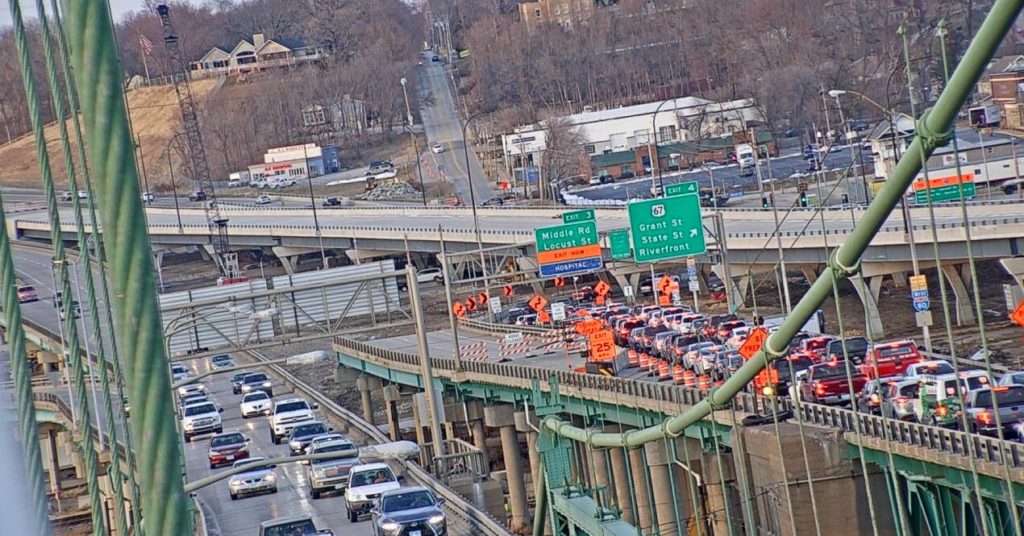
The Iowa Department of Transportation is a nationwide leader in IWZ system implementations. SRF worked with Iowa DOT staff to develop and implement their award-winning work zone management program as part of their Transportation Systems Management and Operations (TSMO) Plan.
SRF designs Iowa’s IWZ systems when projects have an appropriate need. We also provide monitoring and daily support to Iowa’s IWZ providers, contractors, and agency personnel involved with IWZ on construction projects.
IWZ deployments are part of Iowa DOT’s on-going commitment to improving the safety of work zone while decreasing delays. Learn more about the Iowa DOT’s comprehensive work zone program.
“As we think about the future and the coming technologies like AV, we must begin preparing for a new data future as well. We must also position the DOT to provide information to customers in near real time, which necessitates a focus on the data systems we employ. Ultimately, we want customers to have the data and information they need to make better travel and trip choices.”
– Scott Marler, Director Iowa Department of Transportation
Coordination, Collaboration, and Effective Operation
Successful IWZ deployment requires collaboration among all disciplines including planners, designers, construction agencies, and law enforcement. To be effective, this collaboration must start early in the project planning process and continue through the construction lifecycle.
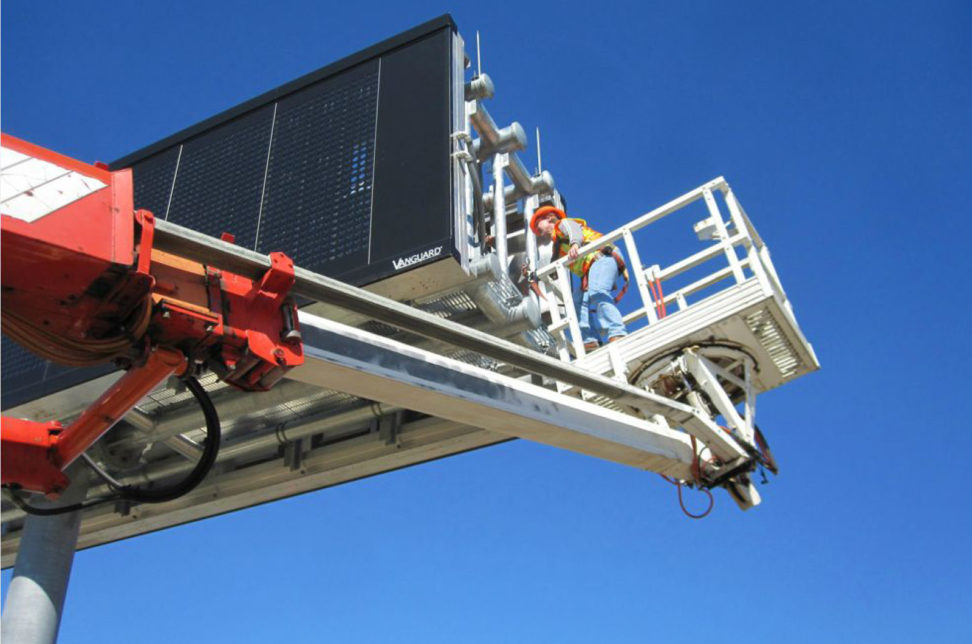
But the benefits of IWZ systems do not stop after the ribbon cutting of the project. To fully realize IWZ benefits, a maintenance plan must be included when selecting IWZ applications to ensure on-going maintenance activities for the life of the transportation system. SRF found that ongoing monitoring of IWZ systems is essential to ensure effective operation. Monitoring tools are critical to keeping project personnel and managers advised of performance issues as well as reacting to the ever-changing work zone environment.
Planning for the future of IWZ Systems
Connected and Automated Vehicle (CAV) technologies are rapidly advancing and the ways that these technologies may reach and affect consumers are also evolving. There are two distinct CAV models evolving for connected vehicles relative to IWZ systems and SRF is actively helping our clients plan for those:
- One model leverages existing data infrastructure, such as 4G and 5G cellular networks, to provide work zone information from centralized databases to in-vehicle systems. In this model, transportation agencies provide work zone data that can be used by OEMs or aftermarket systems to advise drivers and autonomous vehicles.
- The second model involves the emerging use of peer-to-peer connectivity to share this information between vehicles and work zone equipment.
Both methods can be used to broadly deploy IWZ systems, but offer different benefits when considering performance, cost, and availability. SRF is monitoring both models through education and industry contacts to provide state-of-the-practice information to our clients as CAV matures.
[1] Workzonesafety.org/crash-information/
For More Information:
SRF is an industry leader in the design and implementation of IWZ systems. Our team of IWZ experts worked closely with the Federal Highway Administration (FHWA) during the development of the “Guide for ITS in Work Zones” and participated in the Every Day Counts initiative for Smart Work Zones. We have also been actively engaged with ITS America, ITS Heartland, ITS Minnesota, national and local ATSSA events, the Upper Great Plains Transportation Institute’s Transportation Learning Network, and the Midwest Work Zone Roundtable and participated and presented on IWZ at conferences, workshops, webinars, and online learning venues.
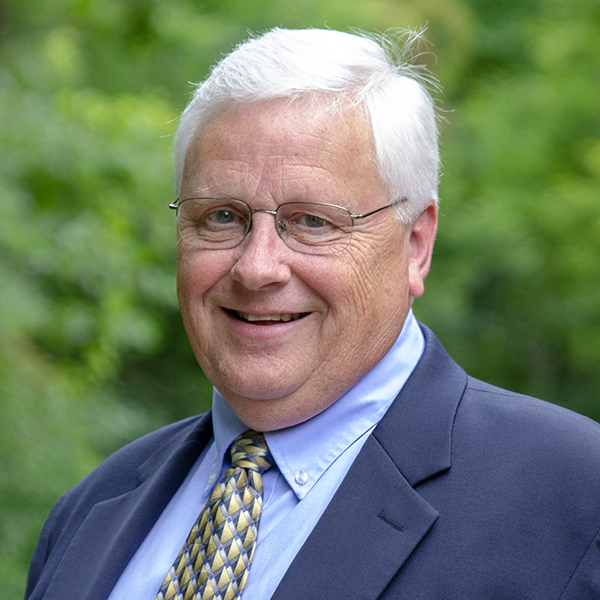
About the Author – Jon Jackels, PE, PTOE
Jon has almost fifty years of ITS and traffic engineering experience, including nearly 40 years with the Minnesota Department of Transportation. As part of the ITS/CAV team at SRF, Jon researches new technologies, provides a foundational understanding of how existing technologies can be adapted for new applications, manages and develops systems engineering for the design of new systems, and evaluates the performance of these new systems and technologies.
jjackels@srfconsulting.com | 763.475.0010

